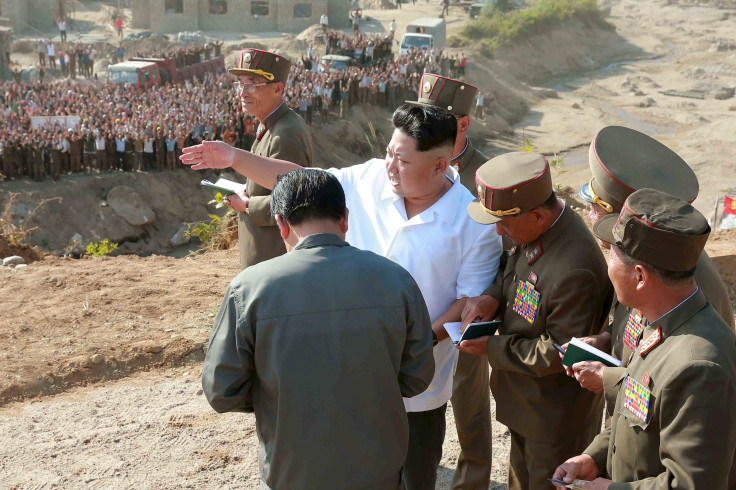North Korea Flood Recovery: ‘Miraculous Victory’ For Kim Jong Un’s Regime In Reconstruction Efforts, State Media Reports

Months after heavy flooding destroyed parts of North Korea’s northeastern region in late August and early September, Kim Jong Un’s regime has termed the disaster recovery after mass mobilization a “miraculous victory” for the East Asian country.
The heavy rains triggered by typhoon Lionrock in late August and early September led to severe floods in North Korea, leaving hundreds of people dead and tens of thousands others stranded. The floods reportedly destroyed over 11,600 buildings, almost 180 sections of roads and more than 60 bridges, also affecting electricity and communication lines.
A mass mobilization movement, referred to as the “200-day battle,” has been credited for the “victory” on the “reconstruction front” in North Hamgyong Province, state-controlled news agency KCNA reported Wednesday. The regime had previously called the railroad recovery a “miracle” and has now said the efforts are “bringing endless joy” to the people.
KCNA reported that 11,900 new homes have been built for residents who lost their shelters because of the floods, in addition to over 100 facilities —from nurseries to medical clinics — having been built to assist those in need. Pyongyang also said another 15,000 homes have been repaired.
“It is a great victory that is the crowning moment of 2016, the historic year of the Seventh Party Congress,” North Korea reportedly said, claiming that a total of 190,000 square meters of embankment along the Tumen River — which divides China and North Korea — has been undergoing bridge restorations while other public infrastructure is being rehabilitated.
However, some people in the country are not as happy with the efforts as Pyongyang is attempting to show. A source in North Hamgyong Province told South Korean news service Daily NK that the newly-built homes are “being turned down by a lot of residents, and now it appears about 10 percent of the homes are vacant.”
The source said entire villages have migrated to new regions while another source said, “There is nothing inside [the homes]. All other things [residents] have to work out on their own.”
The fast pace of redevelopment efforts — which could take up to take three years in a developing country according to a shelter adviser with the International Federation of Red Cross and Red Crescent Societies — has raised suspicions over the sustainability of the construction and the quality of life North Korea claims to be providing its citizens.
© Copyright IBTimes 2024. All rights reserved.






















